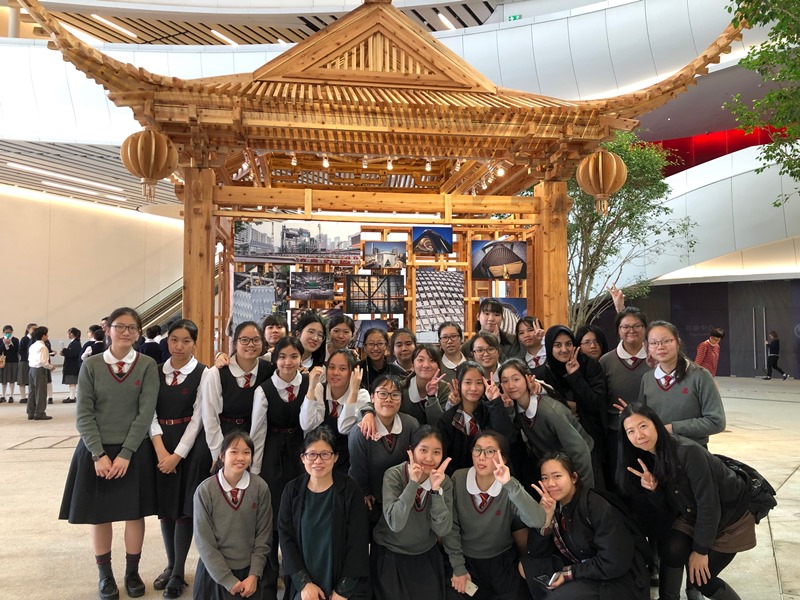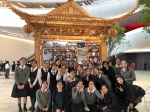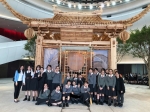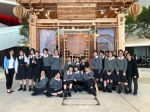27 March, 2019
A visit to Xiqu Centre
Do you like Chinese Opera? I would not say I don't but it was just not very interesting to me before I visited the Xiqu Centre on 27th March. Chinese Opera is one of the “three oldest dramatic art forms in the world”. My class 4A and 4C joined the D. H. Chen Foundation – West Kowloon Tea House Student Matinees. It was a tour for us to experience the Chinese traditional music and its culture. We were amazed by the performances and guided tour that we understood more about Chinese Opera.
Before the visit, I thought that Chinese opera was just singing and acting. However, in the tour, I was taught the real meaning of it. Chinese opera is a mixture of high-pitched singing, acting, clowning, acrobatics and kung fu, with many unique conventions such as masks, face-painting, minimalist stage setting, and elaborate costumes giving no regard to different dynasties in Chinese history.
To start our journey, we entered the Tea House Theatre where an expert speaker started by introducing some technical terms and origin of Chinese Opera. He was really amusing and his lively introduction raised our interest in the traditional art form. Through narrated performances presented by the Tea House Rising Stars Troupe, we explored the art of Chinese Opera and traditional Chinese culture and its relevance to contemporary society. We also took part in a tour of the Xiqu Centre to learn about the architectural and design features of the new building and fun facts about the history and art of Chinese Opera.
The visit was fruitful because I had a chance to learn more about Chinese Opera. It was great that both Chinese and English subtitles were provided during the performances. It could help non-Chinese visitors and guests understand the plays more thoroughly. It was a remarkable experience for me and I would like to have more opportunities to explore the world of Chinese music and culture in the future.
Before the visit, I thought that Chinese opera was just singing and acting. However, in the tour, I was taught the real meaning of it. Chinese opera is a mixture of high-pitched singing, acting, clowning, acrobatics and kung fu, with many unique conventions such as masks, face-painting, minimalist stage setting, and elaborate costumes giving no regard to different dynasties in Chinese history.
To start our journey, we entered the Tea House Theatre where an expert speaker started by introducing some technical terms and origin of Chinese Opera. He was really amusing and his lively introduction raised our interest in the traditional art form. Through narrated performances presented by the Tea House Rising Stars Troupe, we explored the art of Chinese Opera and traditional Chinese culture and its relevance to contemporary society. We also took part in a tour of the Xiqu Centre to learn about the architectural and design features of the new building and fun facts about the history and art of Chinese Opera.
The visit was fruitful because I had a chance to learn more about Chinese Opera. It was great that both Chinese and English subtitles were provided during the performances. It could help non-Chinese visitors and guests understand the plays more thoroughly. It was a remarkable experience for me and I would like to have more opportunities to explore the world of Chinese music and culture in the future.





